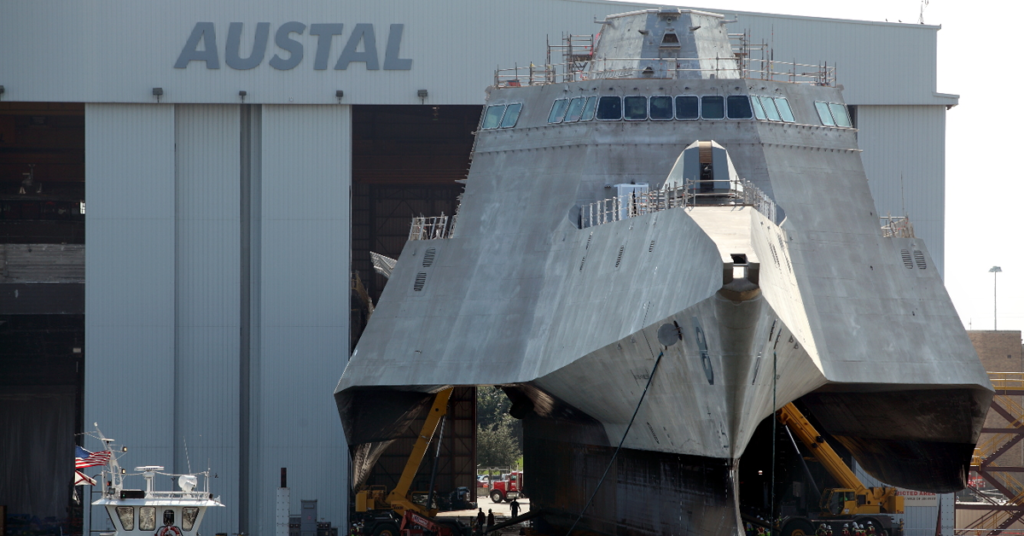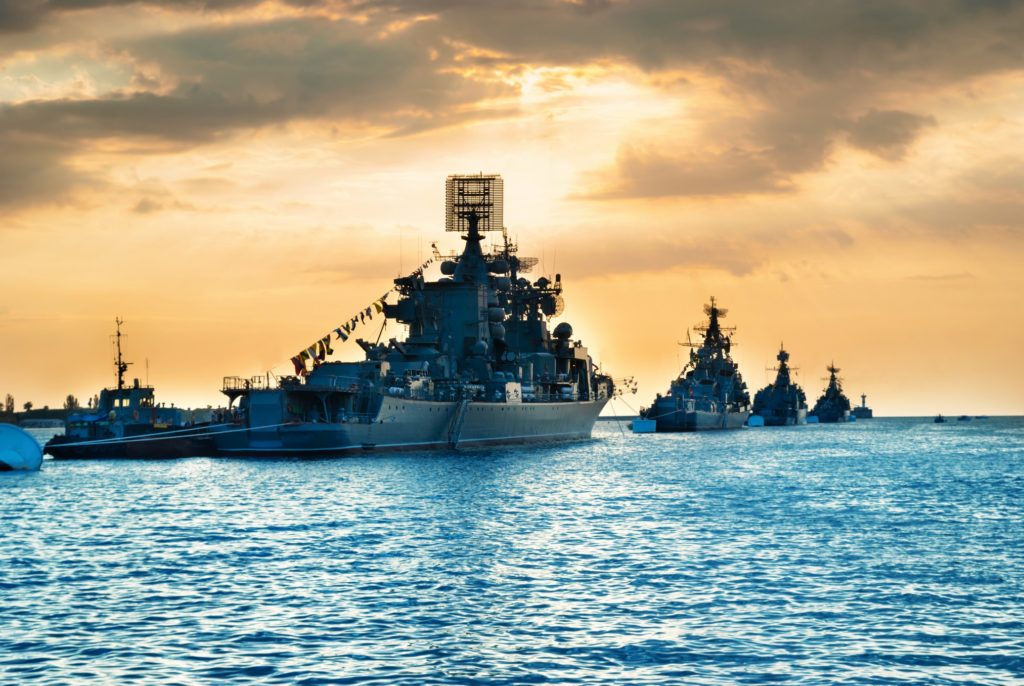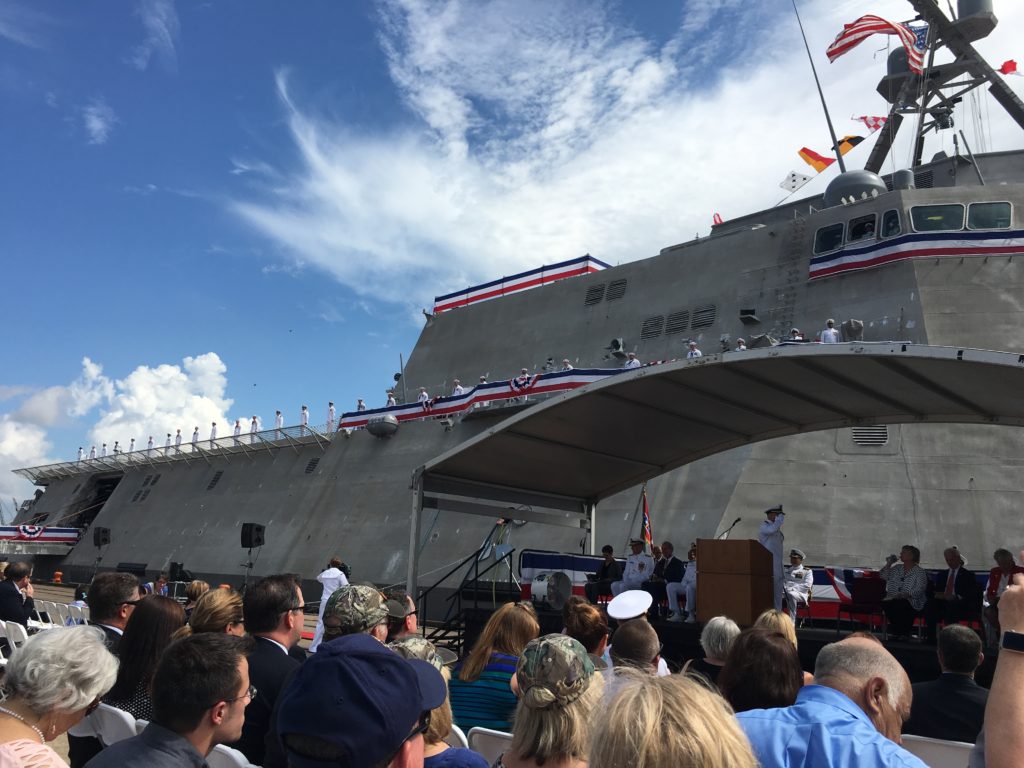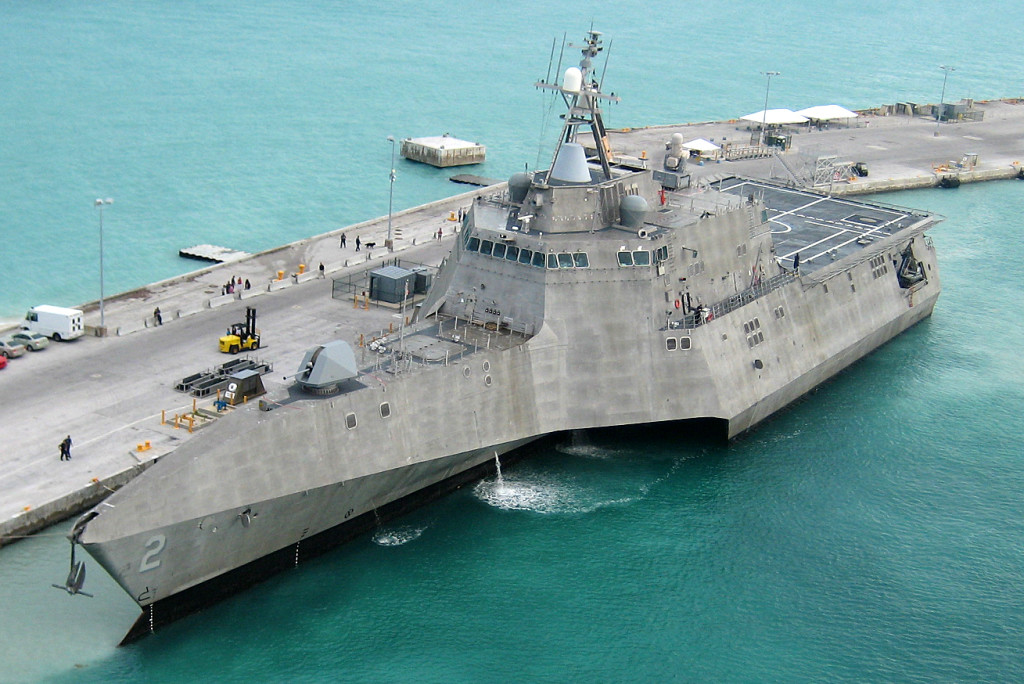New $17 million advanced manufacturing training center coming to Alabama

The facility is designed for students, incumbent workers and people looking for a career change.
Success Plus initiative aims to add 500,000 high-skilled workers

A new strategic workforce development initiative targets the addition of 500,000 high-skilled employees to Alabama’s workforce by 2025 in response to increasing employer demands for the higher levels of talent needed in modern workplaces. Representatives of the Alabama Workforce Council, a group of high-level business leaders from across the state, presented Gov. Kay Ivey with a report on the Success Plus initiative, which aims to prepare a pipeline of workers with industry-recognized skills obtained through earning certificates, credentials or degrees. “Success Plus research recognizes that Alabama will need to add as many as 500,000 high-skilled employees to the workforce by 2025 to fill industry’s labor needs and compete for new businesses, which would equate to approximately 60 percent of the state’s working-age population,” the report says. Ivey said the initiative is needed because the skills required to compete in 21st century workplaces are shifting. “In order to stay competitive in a global economy, Alabama must prepare our workforce to be ready for the jobs of tomorrow,” she said. “We will be working with business and industry to ensure we have the training necessary to equip Alabamians with the skills needed for these high-tech, high-skill jobs.” Read the Success Plus report. Creating pathways Representatives of the Alabama Workforce Council’s Statewide Educational Attainment Committee presented Ivey with its Success Plus report at an announcement event at the Mobile shipyard of manufacturer Austal, which employs more than 4,000 people. “Today’s economy is changing and evolving rapidly,” said the committee’s chairman, Jeff Lynn of the Alabama Community College System. “More and more skill training, in addition to a high school degree, is essential to citizens looking to build a career, improve their lives and provide opportunities for their families.” In addition to laying out a series of goals and measurements, Success Plus aims to improve access to educational opportunities, create pathways and defined routes that show people how to advance a career, and encourage collaboration among private and public entities. Zeke Smith, chairman of the Alabama Workforce Council, said Success Plus is a natural extension of AlabamaWorks, a unified system that aims to link employers with job seekers and create career paths for young people. “Success Plus will provide my team with another tool to utilize on the recruitment tool so that we can build on the economic development momentum we have going today,” said Greg Canfield, secretary of the Alabama Department of Commerce. “This initiative will underscore our commitment to providing a trained workforce and will give companies yet another reason to invest and create jobs in Alabama.” Republished with the permission of the Alabama Newscenter.
Alabama Supreme Court allows lawsuit against Austal to proceed

The Alabama Supreme Court on Friday said employees of Austal shipyard in Mobile, Ala. may proceed with their lawsuit against their employer. Last month, Austal employees filed a lawsuit against their employer claiming the company intentionally endangered them by forcing them to use the cutting tool nicknamed the “widow maker” that managers knew to be dangerous. Austal responded by appealing to the state’s Supreme Court to stop the suit. The suit claims Austal “made the conscious and deliberate decision to intentionally injure its workmen” saying the company didn’t want to go to the trouble or expense of finding a safer tool. In their opinion, the justices said this was hard to believe, but that they could not rule out the possibility of it being true. “That allegation — that a company would deliberately injure multiple specific employees — is so shocking that it invites skepticism,” read the opinion.”Nevertheless, our standard of review does not permit this Court to consider the plausibility of the allegations… The plaintiffs are entitled to at least limited discovery on the issue whether their claims are subject to the exclusivity provision of the LHWCA. Thus, Austal has not shown a clear legal right to a Rule 12(b)(6) dismissal.” At least 53 Austal workers have been injured by the “widow maker,” losing fingers and suffering deep gashes on their faces, necks and arms, according to injury logs dated between January 2011 – March 2015, which were obtained by The Center for Investigative Reporting.
Bradley Byrne: Maintaining a Navy

The shipbuilding industry has always been critically important to those of us living on and around the Gulf Coast. Our area has a proud tradition of building warships and supporting the military. For example, we build the Littoral Combat Ship and Expeditionary Fast Transport at Austal in Mobile. Important military vessels are also built at Ingalls Shipbuilding in Pascagoula and Eastern Shipbuilding in Panama City. Given the importance of shipbuilding to our area, it should not come as a surprise that I am a huge advocate of the United States Navy, Marines, and Coast Guard. But, my support is about much more than just supporting the local economy. I recently had the opportunity to speak with two important nationwide organizations: the Surface Navy Association and the Amphibious Warship Industrial Base Coalition. In my talks with these organizations, I spent much time outlining why it is in the best interest of the United States to build up our fleet. The Constitution gives Congress the express authority to “raise” an Army, but it says Congress is to “provide and maintain” a Navy. This is an important distinction that makes clear our Founding Fathers’ intention for our country to consistently have a fully capable Navy fleet. One of the top reasons for having a strong Navy relates directly to our economy. 90% of world trade goes by sea and at least four million jobs in the United States are connected to sea trade. Who helps keep these sea lanes open and free for commerce? The United States Navy. Over 80% of the world’s population lives within 60 miles of the sea. That is a pretty remarkable statistic that demonstrates just how important it is for the United States to have the ability to freely navigate the sea and respond to issues. For example, when a disaster like the tsunamis in Japan or the earthquake in Haiti occurs, the world needs the United States and our Navy to respond and provide assistance quickly. A lesser known issue relates to the world’s communication systems. 95% of all voice and data are transferred under the ocean by cable. It would not take much for our adversaries to disrupt these cables and bring a lot of our daily lives to an abrupt stop. In Congress, I am honored to serve on the Subcommittee on Seapower and Projection Forces. This position allows me to be involved in all discussions about the future of our nation’s fleet and the need to project strength around the globe. We currently have only 274 ships, and a recent Navy Force Structure Analysis found the need for 355 ships in order to meet the most critical demands. That is why I am so pleased President Trump has made clear his support for a 350 ship fleet. Now, I am proud to be a staunch proponent for less federal spending, but I believe we can make the investments needed to build up our military while also making cuts in other, less critical areas. In other words, we can be fiscally responsible at the same time we are building up our Navy. In fact, President Thomas Jefferson was one of our country’s greatest advocates for a smaller government and less spending, but even he understood the importance of maintaining a strong Navy. During his presidency, he grew the Navy to protect the flow of commerce around the globe. So, I think we can, and we must, make real progress in building up our Navy. The safety and security of the American people and the success of the economy depends on nothing less. • • • Bradley Byrne is a member of U.S. Congress representing Alabama’s 1st Congressional District.
Ronda Walker: Celebrating the Alabama-built USS Montgomery

In the fall of 2011, Secretary of the United States Navy Ray Mabus visited Montgomery and participated in a ceremony on the banks of the Alabama River to announce that one of the new Littoral Combat Ships (LCS) built by global shipbuilder Austal, would be named after the City of Montgomery. Five years later, on Sept. 10, the United States Ship Montgomery was commissioned in a grand ceremony in Mobile. It was a sunny Saturday morning as my husband, Jason, and two of our children, Eli and Margaret, approached the Alabama State Docks in Mobile. As the USS Montgomery came into view, pride and awe filled our hearts. The Montgomery is a strong and aggressive state-of-the-art naval combatant, and with all of her strength and might she protects our borders. She is a bold new addition to the Navy’s combat mission and she was built in Alabama. Adjusting to advances in technology and combat strategy, the Navy determined to improve force coverage in the immediate littoral waters, the waters closest to the shore, thus the development of the Littoral Combat Ship. The LCS is known for her speed, maneuverability and flexibility. She can swap out various systems to take on different missions, including finding and destroying mines, hunting submarines in shallow water, and fighting small boats. She also boasts a large flight deck and hangar. The U.S.S. Montgomery can reach a max speed of 40-plus knots, weighs 2,959 tons, and is 420 feet long. On board she will have 11 officers and 42 enlisted personnel. She will leave Mobile Bay this week headed to San Diego, passing through the Panama Canal en route. On board she will have the ship’s bell from the previous USS Montgomery (C9). That bell will eventually find its way back to the City of Montgomery and be displayed in City Hall for visitors to enjoy. About 3,000 people gathered for the commissioning ceremony last Saturday. Many Montgomerians made the trip as well as many from our sister city of Mobile, including Mayor Sandy Stimpson. Crew members of the USS Montgomery had family in attendance, and there were dignitaries from across the state including Lt. Gov. Kay Ivey, Sen. Jeff Sessions, Congressman Bradley Byrne, Montgomery Mayor Todd Strange, and Montgomery County Commission Chairman Elton Dean. But for the most part the crowd consisted of proud Alabamians excited to experience this awesome piece of history. Naval tradition calls for each ship to have a sponsor, a female civilian who will provide good luck and advocacy for the ship. In the case of the USS Montgomery, the grand honor of sponsor was bestowed on a Montgomery native daughter, Mary Montgomery Blackshear Sessions. Mrs. Sessions grew up in Montgomery and attended Huntington College, where she met her husband, U.S. Sen. Jeff Sessions. Mary Sessions brought a remarkable amount of Southern charm, grace and strength to the commissioning ceremony as she served in her capacity as sponsor. Mrs. Sessions is now considered a permanent member of the ship’s crew. For most in attendance, like myself, witnessing the birth of a new naval ship was a first-time experience. It was a profound moment for my entire family that will forever be etched in our memory. After the impressive pomp and circumstance of the ceremonial speeches and bell ringing, the Commander of the USS Montgomery, Daniel Straub, called out for his sailors to, “man our ship and bring her to life.” At that moment as the brass band played, the uniformed crew of the Montgomery ran from the back of the audience, down the aisles and up the plank of the massive ship, literally bringing her to life. Because as powerful and grand as the ship itself is, the lifeblood of the Navy is the men and women who serve. I was overcome with tears of patriotic pride as the sailors boarded their ship and prepared to serve and defend our great nation. Words cannot express my thankfulness for the service of all of our military members. I cannot think of a more fitting event to attend with my family one day before the 15th anniversary of 9-11-01. The moment was not lost on anyone in attendance as we remembered the painful images of the 9-11 attacks and now sat staring at the newest vessel in the world’s most powerful Navy. We are a stronger, more prepared people as a result of our collective experiences and the powerful display of military might realized in the USS Montgomery made us all proud to be Americans. We must stand firm in our commitment to provide for a common defense. Thank you USS Montgomery, I wish you fair winds and following seas. ••• Ronda M. Walker is a wife, mother of four, and a member of the Montgomery County Commission.
Bradley Byrne: Supporting strong a Navy and saving our jobs

President Barack Obama just doesn’t get it. From ISIS to Russia to China to Iran, our nation is facing a wider range of threats than almost any time in our nation’s history. Despite these threats, the budget President Obama sent to Congress last week proposed making cuts to important military programs. One of the programs President Obama wants to cut is the Littoral Combat Ship (LCS). As you may know, these are the ships we build at the Austal shipyard in Mobile. All along, the plan has been to build 52 Littoral Combat Ships, but the president has now proposed cutting the total to only 40 ships. The president proposed these cuts against the wishes of our Navy leaders. In fact, just last year, Secretary of the Navy Ray Mabus said, “We have a need, a demonstrated need, for 52 of these small surface combatants.” So, I have a very clear message to the over 4,000 men and women who work at the Austal shipyard and their families: This proposal from a lame-duck President and his lame-duck Secretary of Defense will not stand. I strongly support the LCS program and the work done at Austal because I know how important the shipyard is to our local economy, but that is not the main reason I have been so outspoken and worked so hard to push back against attempts to cut the program. The main reason I support the LCS is because I know how important this class of ship is to keeping our Navy strong and our nation safe. Under President Obama, we have seen our Navy shrink to levels that are incredibly alarming. Making matters worse, the LCS is a unique ship that is designed to fill a role that no other ship in the fleet can fill. The LCS is designed for littoral, or shallow, waters. The ship is especially important in the Pacific region where China is creating man-made islands in an attempt to take control of international waterways. Larger Navy vessels simply cannot sail in those waters, but the LCS is designed exactly for that type of mission. It is also important to point out that the LCS program is continuing to mature and develop. Last week, the Mobile-built USS Coronado completed an important survivability test that allowed the ship and her crew to demonstrate their ability to handle and respond to a wide range of challenges. The Navy pointed out that the LCS not only passed but exceeded the survivability requirements. The LCS is also a rare military program that has actually seen costs decrease over time. In these tight budget times, this is an incredibly important quality. The LCS is a very affordable ship that can help us re-establish our naval capacity. I’ve seen these ships being built, I’ve talked to the Navy leadership, and I’ve visited with the sailors who are actually working on these vessels. They all support the LCS and the vital role it plays in the Navy’s fleet. If the LCS wasn’t important to our national security strategy and Navy leaders weren’t so outspoken in support of the ship, I wouldn’t have taken up this fight, but I know how devastating it would be for our entire naval fleet to cut back on the LCS program. I will fight every day to make sure that our Navy has the resources it wants and needs to protect our nation and keep sea lanes open. The LCS is a critical part of that mission. • • • Bradley Byrne is a member of U.S. Congress representing Alabama’s 1st Congressional District.


